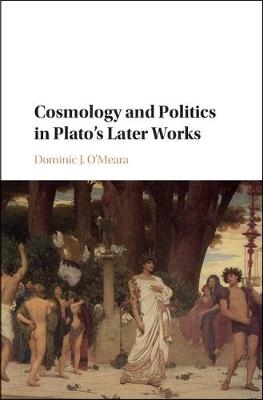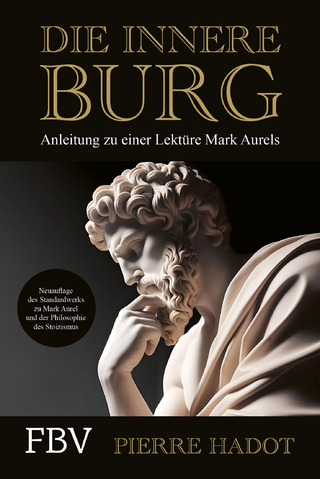
Cosmology and Politics in Plato's Later Works
Seiten
2017
Cambridge University Press (Verlag)
978-1-107-18327-8 (ISBN)
Cambridge University Press (Verlag)
978-1-107-18327-8 (ISBN)
Knowledge of the structure of the cosmos, Plato suggests, is important in organizing a human community which aims at happiness. Dominic J. O'Meara investigates this theme in Plato's later works, the Timaeus, Statesman ,and Laws, situating them in their artistic and religious context.
Knowledge of the structure of the cosmos, Plato suggests, is important in organizing a human community which aims at happiness. This book investigates this theme in Plato's later works, the Timaeus, Statesman, and Laws. Dominic J. O'Meara proposes fresh readings of these texts, starting from the religious festivals and technical and artistic skills in the context of which Plato elaborates his cosmological and political theories, for example the Greek architect's use of models as applied by Plato in describing the making of the world. O'Meara gives an account of the model of which Plato's world is an image; of the mathematics used in producing the world; and of the relation between the cosmic model and the political science and legislation involved in designing a model state in the Laws. Non-specialist scholars and students will be able to access and profit from the book.
Knowledge of the structure of the cosmos, Plato suggests, is important in organizing a human community which aims at happiness. This book investigates this theme in Plato's later works, the Timaeus, Statesman, and Laws. Dominic J. O'Meara proposes fresh readings of these texts, starting from the religious festivals and technical and artistic skills in the context of which Plato elaborates his cosmological and political theories, for example the Greek architect's use of models as applied by Plato in describing the making of the world. O'Meara gives an account of the model of which Plato's world is an image; of the mathematics used in producing the world; and of the relation between the cosmic model and the political science and legislation involved in designing a model state in the Laws. Non-specialist scholars and students will be able to access and profit from the book.
Dominic J. O'Meara is Professor Emeritus in the Department of Philosophy at the Université de Fribourg, Switzerland. His numerous publications on the history of Platonism include Pythagoras Revived (1989) and Platonopolis (2003). He is a founding member of the Academia Platonica Septima and a recipient of the Prince of Liechtenstein Prize.
Prologue: the future of the past in Plato's work; Part I. The World of Timaeus: 1. A feast for the Goddess; 2. The world-maker; 3. The model of the world; 4. The beauty of the world; Interlude; Part II. The City of the Statesman and the Laws: 5. The Statesman: a new robe for the Goddess?; 6. The legislators of the Laws; 7. The order of the city of the Laws and its model; Epilogue.
| Erscheinungsdatum | 08.10.2017 |
|---|---|
| Zusatzinfo | Worked examples or Exercises |
| Verlagsort | Cambridge |
| Sprache | englisch |
| Maße | 160 x 235 mm |
| Gewicht | 390 g |
| Themenwelt | Geisteswissenschaften ► Philosophie ► Philosophie Altertum / Antike |
| Naturwissenschaften ► Physik / Astronomie ► Astronomie / Astrophysik | |
| ISBN-10 | 1-107-18327-8 / 1107183278 |
| ISBN-13 | 978-1-107-18327-8 / 9781107183278 |
| Zustand | Neuware |
| Informationen gemäß Produktsicherheitsverordnung (GPSR) | |
| Haben Sie eine Frage zum Produkt? |
Mehr entdecken
aus dem Bereich
aus dem Bereich
Anleitung zu einer Lektüre Mark Aurels
Buch | Hardcover (2025)
FinanzBuch Verlag
CHF 27,95
mit Sokrates, Seneca, Platon & Co. im Gespräch
Buch | Hardcover (2023)
FinanzBuch Verlag
CHF 25,20


